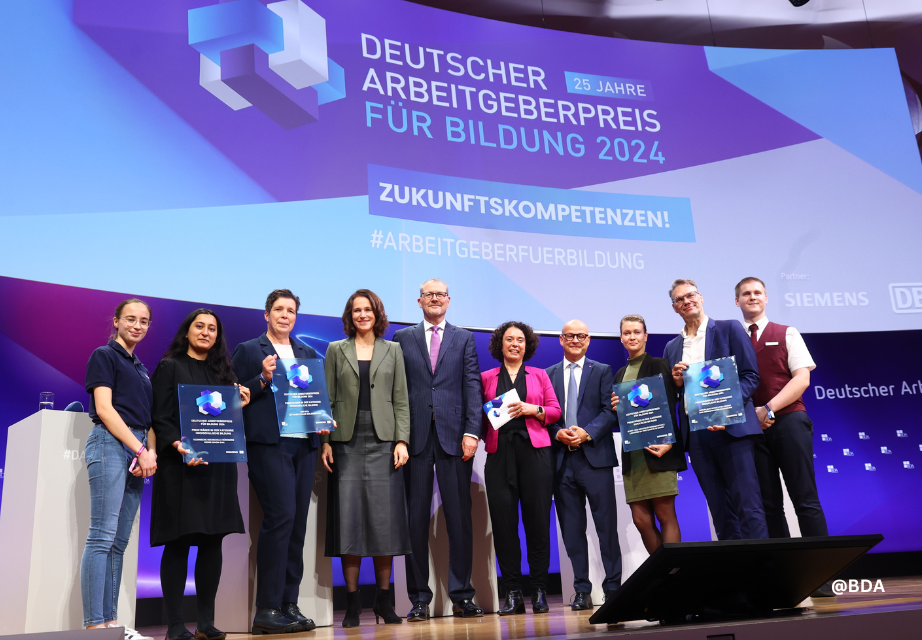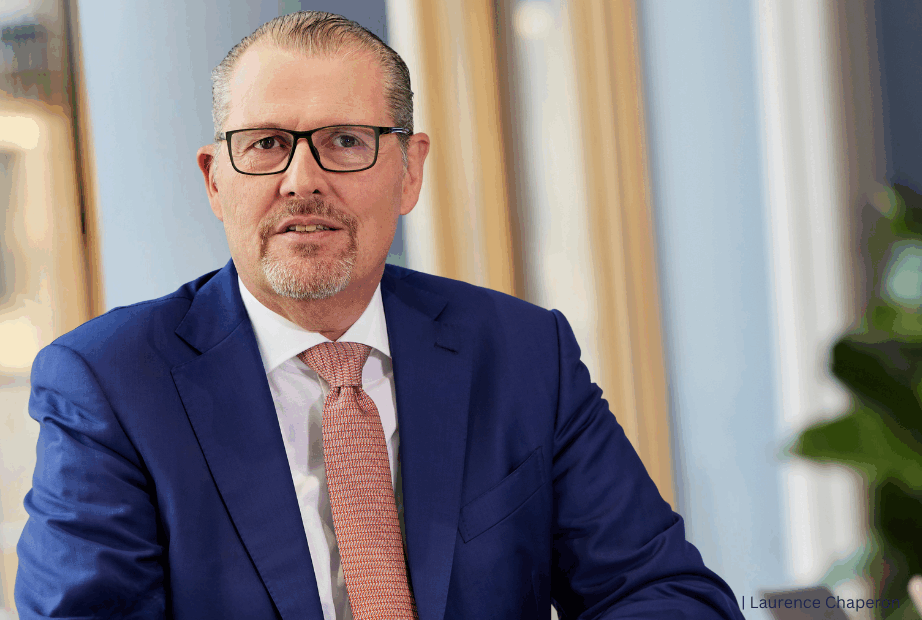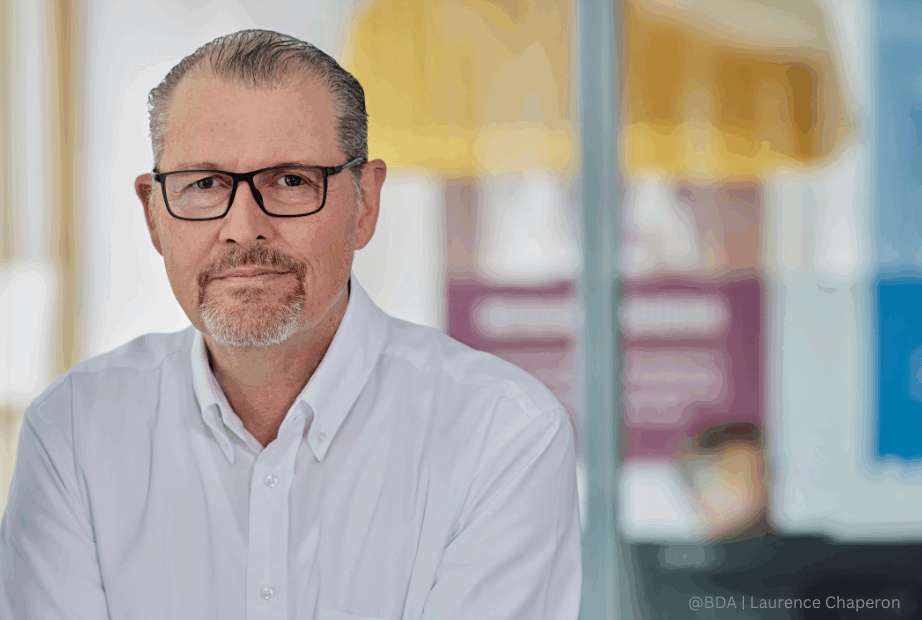- TOPICS
-
-
- Employment and Labour Market
- Labour law and collective bargaining policy
- General applicability
- Industrial action
- Labour & collective bargaining law
- Working time
- Time limit
- Works Constitution
- Bureaucracy reduction
- Data protection
- Protection against discrimination
- Parental leave
- Posting
- Insolvency
- Protection against dismissal
- Minimum wage
- Co-determination
- Mobile work
- Maternity protection
- Pandemic
- Care time
- Self-employment
- Tariff autonomy
- Collective Bargaining Agreement
- Collective bargaining unit
- Tariff policy
- Collective bargaining
- Collective agreement
- Part-time work
- Restructuring
- Holiday law
- Contracts for work
- Whistleblowing
- Temporary work
- Education and vocational training
- Training market
- Professional orientation
- Education policy
- Education 4.0
- Dual education
- dual study
- Permeability
- Early childhood education
- Higher Education Funding
- Lifelong learning
- Teacher Education
- Reorganization of education and training
- STEM Professionals
- Economic education
- Accreditation/Quality assurance
- SCHOOLBUSINESS Germany
- Digitalization and innovation
- Europe and International Affairs
- Social policy and social security
- Old-age poverty
- Work made in Germany
- Occupational safety
- Contribution and registration law
- Company pension scheme
- Shortage of company doctors
- Health insurance
- Long-term care insurance
- Mental health
- Pension insurance
- Riester pension
- Social self-government
- Social insurance
- Accident insurance
- The future of social security
- Taxes & Finances
- Economy & Society
-
-
-
- Newsroom
- The BDA
- Members

Educational institutions from Bavaria, Brandenburg, Hamburg and North Rhine-Westphalia win coveted education prize

German Employer Award for Education honors top projects in the field of "Future Skills!": Educational institutions from Bavaria, Brandenburg, Hamburg and North Rhine-Westphalia win coveted education prize.
Berlin, October 22, 2024. 25 years of the German Employer Award for Education represent a quarter of a century of employer commitment to outstanding education. In the anniversary year, top projects that have madethe promotion of "future skills!" their goalwill be honored . Four award winners from the fields of early childhood, school, vocational and higher education can look forward to receiving 10,000 euros each.
- Award-winning daycare center: AWO Kita Lütticher Straße Geilenkirchen (North Rhine-Westphalia )
- Winning school: Leonardo da Vinci Campus Sports and Creativity Comprehensive School, Nauen (Brandenburg)
- Vocational training award winner: Vocational school for media and communication, Hamburg
- Winner University: Nuremberg Georg Simon Ohm University of Technology, Nuremberg (Bavaria)
The HR directors of the partner companies Deutsche Bahn AG and Siemens AG, Martin Seiler and Judith Wiese, personally presented the award to the representatives of the educational institutions at the German Employers' Day in Berlin - also on behalf of employer president Dr. Rainer Dulger.
Employer President Dr. Rainer Dulger explains: "Education is our most important resource: the learners of today are the skilled workers of tomorrow. As an entrepreneur, I know this only too well. That's why we need educational institutions that make our children and young people strong for the future - along the entire education chain. This makes the signal we want to send out on the 25th anniversary of the German Employer Award for Education all the more important: Innovative education concepts provide important impetus for the further development of our education system. This year's four award winners impressively demonstrate how very different approaches - from daycare centers and schools to vocational schools and universities - can make learners fit for the future. This makes them role models for the whole of Germany and opens up prospects for an effective training culture."
Judith Wiese, Board Member for Human Resources and Sustainability and Labor Director at Siemens AG, emphasizes: "What we need now and in the future are skills such as critical and creative thinking, curiosity, resilience and the ability to communicate and collaborate efficiently. And this applies to all age groups. Education is the decisive factor for a competitive Germany. Therefore, in addition to basic skills, digital and "green" knowledge must also be an integral part of the curriculum - whether in daycare centers, schools, vocational schools or universities. The four winners of the Education Award have impressively demonstrated how these future skills can be successfully promoted."
Jury chairman Martin Seiler, Chief Human Resources and Legal Officer of Deutsche Bahn AG, emphasizes: "The young people of today form the foundation for a liveable and successful tomorrow. Children, young people, young adults: they are the future that we want and need to support. Our democracy and our business location are also based on this. That's why we wanted to know from educational institutions: How are they preparing their learners today for an increasingly fast-changing future? How do they provide young people with a solid foundation of basics and at the same time curiosity and openness to change and further development? Our focus was on innovative ways of teaching and learning across the entire education chain - from early childhood and school education to vocational and higher education. We can all learn from this year's winners of the German Employer Award for Education."
German Employer Award for Education on the Internet:
You can find out more about the winners of previous years as well as the competition criteria and conditions of participation at www.arbeitgeberpreis-fuer-bildung.de
Information and a short film about the current award winners:
www.deut scher-arbeitgebertag.de
ANNEX: Information on the award winners
Early childhood education category: AWO Kita Lütticher Straße Geilenkirchen (NRW)
Language is the key to participation in society. For AWO Kita Lütticher Straße in Geilenkirchen, language is therefore an essential skill for the future. Around half of its daycare children have a migrant background, many come from a home where no German is spoken or are growing up bilingual. With a welcoming culture and an appreciative approach to diversity, the daycare center promotes the self-esteem and self-efficacy of its children. In close cooperation with parents, difficult starting conditions are transformed into opportunities, despite language or sometimes cultural barriers. Children learn democratic skills through co-determination. Importantly, they also learn to tolerate other opinions and how to deal constructively with them and with failure. In this way, the children are accompanied on their way to becoming tolerant, active members of society. The daycare center uses its network from the local fire department to the retirement home for excursions, during which digital media is also used in a playful way - as a tool that is "not just for consumption".
School education category: Leonardo da Vinci Campus Sports and Creativity Comprehensive School in Nauen (Brandenburg)
The comprehensive school focuses on a broad spectrum of future skills: Flexibility, reflection and willingness to change are taught as an attitude and practiced in the school. The school gives its learners freedom and at the same time responsibility for their own development.
Learning steps, methods and successes. With the support of teachers as tutors and coaches, students can choose their own courses, work focuses and interdisciplinary project work from the annual program and plan their own schedules. They use various learning environments for group or individual work and also determine the time of their module examinations. In addition to an analogue desk, they all use a digital desk with all content and communication and organization tools. Career orientation includes internships lasting several weeks in each school year and regular study days at universities in the upper school. In order to further develop the teaching content and structures, pupils, teachers and parents are regularly surveyed and the results evaluated - for optimal preparation for a changing society and working world. https://www. ldvc.de/
Vocational training category: Vocational school for media and communication in Hamburg
The vocational school for media and communication specifically sensitizes its audiovisual media trainees to the responsible use of social media. Practical scenarios are used to strengthen skills in the digital environment on three levels: Professionally, trainees learn how to deal confidently with shitstorms and fake accounts. Privately, they reflect on their own media use, especially when dealing with hate comments. At a political level, awareness of the effects of fake news and the possible manipulation of elections by bots is raised in order to promote the trainees' democratic skills. This scientifically supported approach is transferable to other educational programs. A reflective approach to social media is essential for young people today, both in a professional and private context, given the challenges posed by fake news, hate comments and high social pressure. www.bmk-hh.de
Higher education category: Nuremberg Georg Simon Ohm University of Technology (Bavaria)
Training students systematically, practically and across faculties in "Future Skills" and thus optimally preparing them for the world of work - that is the goal of the Ohm. The developed "Future Triplex" approach comprises three qualification programs that are offered every semester and are open to all students, even those with no prior knowledge. All programs are developed and implemented together with experts from companies and partner institutions. They offer students the opportunity to develop their skills profiles independently and in a targeted manner. The focus is on technological skills, key digital skills, traditional and transformative skills. In the application-oriented Future Skills Weeks, students work on topics such as change and conflict management. An elective program for digital skills focuses on topics ranging from virtual reality to data security. In Data Analytics, students can acquire micro credentials. Due to the high level of interest, the portfolio is also to be transferred to further training in companies and the targeted reskilling and upskilling of professionals. https://www.th-nuernberg.de/






